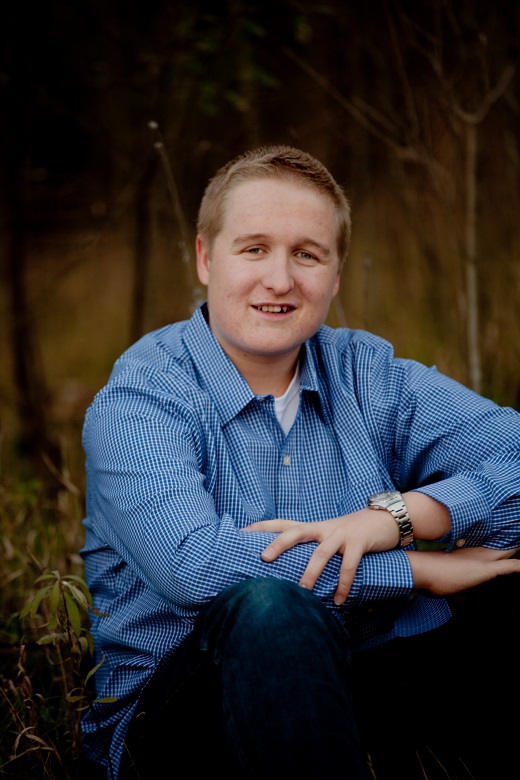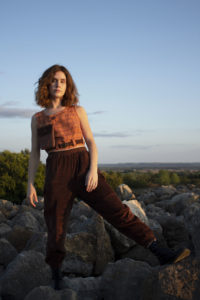11/11/20
K-State Current - November 11, 2020
K-State Current is a weekly news update for the Kansas Board of Regents to apprise the Regents on a few of the many successes and achievements made by K-State faculty, staff and students.
K-State News
 The U.S. Environmental Protection Agency has announced that the Pollution Prevention Institute at Kansas State University is among 11 organizations across nine states to receive grant funding totaling $1.16 million to support pollution prevention.
The U.S. Environmental Protection Agency has announced that the Pollution Prevention Institute at Kansas State University is among 11 organizations across nine states to receive grant funding totaling $1.16 million to support pollution prevention.
A part of Engineering Extension in the Carl R. Ice College of Engineering, the Pollution Prevention Institute will receive a $132,000 Source Reduction Assistance grant to fund innovative, cost-effective, replicable source reduction approaches. The award will enable grant recipients and others to save energy and water, reduce pollution and improve public health.
The Pollution Prevention Institute will partner with the world's largest first-tier aerostructures manufacturer, Spirit AeroSystems, to provide source reduction technical assistance through investigation, studies, education, training and demonstration. The end goal will be to reduce toxic solvents, hazardous waste and emissions by 10% per airplane built, saving more than $270,000. The results will promote replication via published videos and a case study presented at various state, national and international events.
"We are excited to work with Spirit AeroSystems in Wichita and plans to amplify its success through a partnership with the Aerospace Industries Association and the International Aerospace Environmental Group," said Nancy Larson, director of the Pollution Prevention Institute. "This project would not be possible without the support of EPA and our aerospace partners."
Since the inception of the program in 2003, EPA has awarded Source Reduction Assistance grants to state, local and tribal government entities, nonprofits and university partners to work directly with U.S. businesses to develop and implement source reduction techniques.
Again the best: Kansas State University among top LGBTQ-friendly colleges and universities
 Kansas State University is among the top 40 campuses in six regions selected for its institutional support and commitment to LGBTQ-inclusion in policy, program and practice.
Kansas State University is among the top 40 campuses in six regions selected for its institutional support and commitment to LGBTQ-inclusion in policy, program and practice.
For the fourth consecutive year, Campus Pride lists K-State as one of its Best of the Best LGBTQ-friendly colleges and universities. The university is the only school in Kansas to be included in the listing.
In addition to the ranking, the university earned a five-star Campus Pride index score because it meets LGBTQ-inclusive benchmarks regarding policy inclusion, support and institutional commitment, academic life, student life, housing and residence life, campus safety, counseling and health, and recruitment and retention efforts. Noted in the listing is the university's LGBT Resource Center, which promotes equity, respect, and social justice through programs, outreach and education.
Read more about K-State's commitment to LGBTQ issues, overall Campus Pride index score and LGBTQ-friendly report card.
K-State Faculty Highlights
Bruce Snead honored with lifetime achievement award
 Bruce Snead, director of Engineering Extension in the Carl R. Ice College of Engineering, has received the Lifetime Achievement Award for Mentorship from the American Association of Radon Scientists and Technologists.
Bruce Snead, director of Engineering Extension in the Carl R. Ice College of Engineering, has received the Lifetime Achievement Award for Mentorship from the American Association of Radon Scientists and Technologists.
The award was presented by Crystal Lytle, acting president of the association, as part of the 34th annual American Association of Radon Scientists and Technologists International Virtual Radon Symposium Nov. 9-13.
Snead has been director of Engineering Extension at Kansas State University since 2011 and state extension specialist in radon and indoor air quality since 1982. He is an active trainer for the Midwest Universities Radon Consortium, the Kansas Radon Program and the National Radon Program Services under a cooperative agreement with the U.S. EPA. Snead has served on numerous association committees, retiring as chair of the National Radon Proficiency Program policy advisory committee in 2017.
K-State Student News
APDesign students earn Eisenhower Transportation Graduate Fellowship
Two graduate students from the College of Architecture, Planning & Design, or APDesign, are Kansas State University's latest recipients of the prestigious Dwight David Eisenhower Transportation Graduate Fellowship from the U.S. Department of Transportation.
 Jason Groothuis, Omaha, Nebraska, and Tyler Tripp, Frisco, Texas, both master's students in regional & community planning, received the fellowship, which supports graduate studies in transportation-related disciplines. Their selection marks the fifth year in a row that APDesign students have earned the fellowship and the fourth year in a row that multiple APDesign students have received this financial support.
Jason Groothuis, Omaha, Nebraska, and Tyler Tripp, Frisco, Texas, both master's students in regional & community planning, received the fellowship, which supports graduate studies in transportation-related disciplines. Their selection marks the fifth year in a row that APDesign students have earned the fellowship and the fourth year in a row that multiple APDesign students have received this financial support.
Greg Newmark, assistant professor of landscape architecture and regional & community planning, is the major professor to the fellowship-winning students.
The fellowships are awarded annually to 150-200 exceptional students around the country. The fellowship program advances the transportation workforce by attracting the brightest minds to the field through education, research and workforce development. The $5,000 awards to both Groothuis and Tripp include a stipend, tuition support and the opportunity to attend the 2021 Transportation Research Board annual meeting in Washington, D.C.
"We are grateful for the U.S. Department of Transportation's consistent support of regional & community planning students," said Stephanie Rolley, professor and head of the landscape architecture and regional & community planning department. "Our Eisenhower fellows have conducted research that informs a broad range of transportation issues, including social equity, alternative transportation systems and mass transit. Tyler and Jason will make strong contributions to that body of knowledge."
Groothuis received the fellowship for his project "Transit Systems: Omaha, Nebraska, ORBIT Equity and Benefit Analysis."
 "As my ongoing master's report, I am working to analyze the effects of a new BRT — Bus Rapid Transit — line in Omaha," Groothuis said. "The report will specifically focus on analyzing if the locations of new stops are equitable in their placement to serve inner-city residents along the new BRT route. Most of the analysis done for the study is through GIS, using the transit data to plot the location of new stops and using multiple analysis features to determine their distance from likely points of trip generation."
"As my ongoing master's report, I am working to analyze the effects of a new BRT — Bus Rapid Transit — line in Omaha," Groothuis said. "The report will specifically focus on analyzing if the locations of new stops are equitable in their placement to serve inner-city residents along the new BRT route. Most of the analysis done for the study is through GIS, using the transit data to plot the location of new stops and using multiple analysis features to determine their distance from likely points of trip generation."
Tripp received the fellowship for his project "The Effects of Affordable Alternative Transportation on the Upward Mobility of Low-Income Populations."
"I plan on using this opportunity to study the effects of affordable alternative transportation on upward mobility for disadvantaged communities," Tripp said. "I believe that modern inequity is compounded by geographic disadvantages and limited access to transportation. A major goal of this project will be to analyze the effects of new infrastructure on the original population while accounting for the effects of gentrification. Furthermore, I hope to provide a method of predicting the income changes of the original residents of a community based on the type and quality of infrastructure implemented."
Previous recipients of the Eisenhower Transportation Graduate Fellowship from the department include James Wood, 2013; Emma Rearick, 2016; Rial Carver, 2018; Rachel Foss and Andrew Young, 2018 and 2019; and Amber Berg, Scott Hazelton, Brennan Walter in 2019. Students in the regional & community planning program have been awarded a total of $119,900 in support from the fellowship program.
Fashion studies student team wins top award through International Textile and Apparel Association
 A team of three fashion design students were awarded the Optitex Technology Award in the undergraduate category during the 2020 International Textile and Apparel Association’s annual conference.
A team of three fashion design students were awarded the Optitex Technology Award in the undergraduate category during the 2020 International Textile and Apparel Association’s annual conference.
Rachel Dugger and Dani Hall, December 2019 graduates and Kelly Grogan, a May 2020 graduate, developed a design collection using advanced computer technologies such as 2D digital pattern drafting, 3D virtual simulation and textile digital printing. One of the designs in that collection, Nebulous, was selected for the top award.
This collection was developed as a part of the final project of a fashion pre-production technology course in fall 2019. The goal of this course was to equip students with advanced digital technologies for fashion pre-production and to help them understand the fashion pre-production process for mass production. Therefore, the final project of this course was designed to simulate the pre-production process in an industrial environment. Notably, by collaborating with an industrial partner, Academy Sports + Outdoors, students were prepared to work professionally under constraints.
To follow the design theme, “Lifestyle Collection: Wearing athletic-like clothing every day”, which was assigned by Academy Sports + Outdoors, the overarching goal of the Nebulous collection was to design garments functional enough for outdoor activities but fashionable enough for daily wear. The design concept centers around reclaimed comfort, versatility, and convertibility.
 Nebulous was completed with high quality in every design and product development stage. It demonstrated the fashion pre-production knowledge and digital techniques the design team had acquired. It also showcased the student designers’ capability in conducting successful market research and their understanding of textiles. It consists of a loose-fitting linen/cotton blend tank top with pocket and belt details and a pair of cotton corduroy cargo pants. The designers selected these fabrics for comfort, durability, and breathability. The designers also designed the plaids and digitally printed it for the tank top. While the belt can be used to cinch at the top when a wearer wants the garment to be close to her body, the belt and pocket can convert into a carrying bag.
Nebulous was completed with high quality in every design and product development stage. It demonstrated the fashion pre-production knowledge and digital techniques the design team had acquired. It also showcased the student designers’ capability in conducting successful market research and their understanding of textiles. It consists of a loose-fitting linen/cotton blend tank top with pocket and belt details and a pair of cotton corduroy cargo pants. The designers selected these fabrics for comfort, durability, and breathability. The designers also designed the plaids and digitally printed it for the tank top. While the belt can be used to cinch at the top when a wearer wants the garment to be close to her body, the belt and pocket can convert into a carrying bag.
The fashion studies program has utilized the Optitex 2D and 3D software for a number of years through a partnership with Academy Sports + Outdoors. With the high level of performance that students are able to demonstrate with the software, Academy Sports + Outdoors has continued to provide financial support for students in the fashion studies program to be able to utilize this leading-edge software.
For more information on the fashion studies program at K-State, please visit their website.